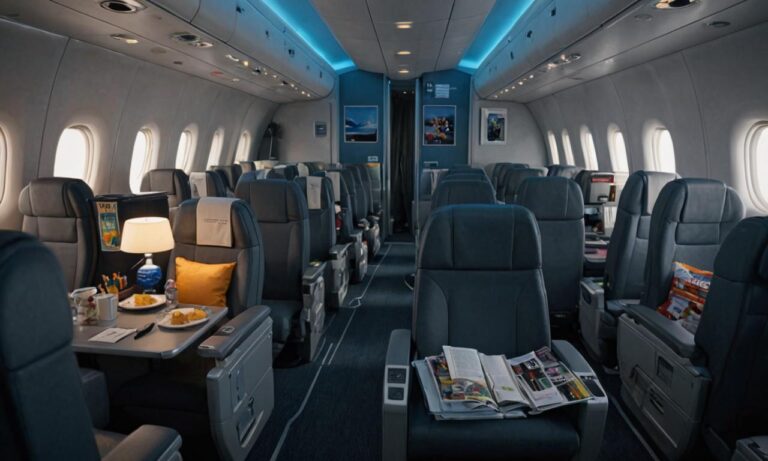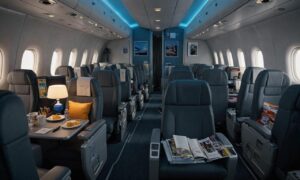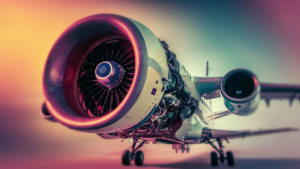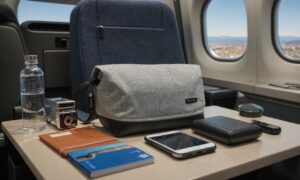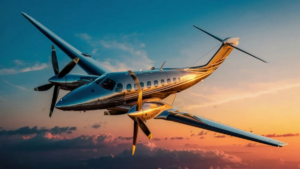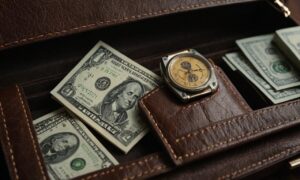Understanding why your ears pop on a plane is crucial for a comfortable flying experience. Many travelers experience this sensation during takeoff and landing, often accompanied by discomfort or mild pain. However, this phenomenon is a natural response of the human body to changes in air pressure.
The Science Behind Ear Popping
When an airplane ascends or descends, the pressure in the cabin changes rapidly. This change affects the pressure in the middle ear, which is the air-filled space behind the eardrum. Normally, the Eustachian tube, a narrow passage that connects the middle ear to the back of the nose and throat, helps to equalize the pressure on both sides of the eardrum. However, during rapid altitude changes, the Eustachian tube may not adjust quickly enough, leading to a pressure imbalance and causing the ears to pop.
Equalizing Ear Pressure
To alleviate the discomfort of ear popping, there are several techniques you can try:
- Swallowing: Swallowing activates the muscles that open the Eustachian tube, helping to equalize pressure.
- Yawning: Yawning also helps to open the Eustachian tube and relieve pressure in the ears.
- Chewing Gum: Chewing gum encourages swallowing, which can aid in equalizing ear pressure.
- Valsalva Maneuver: Gently blowing with your nostrils pinched and mouth closed can help to open the Eustachian tube.
Preventing Ear Popping
There are steps you can take to reduce the likelihood of experiencing ear popping discomfort:
- Stay Hydrated: Drinking plenty of water before and during the flight can help keep the Eustachian tube functioning properly.
- Avoid Alcohol and Caffeine: Both alcohol and caffeine can dehydrate the body, which may affect the Eustachian tube’s ability to equalize pressure.
- Use Earplugs: Some travelers find that wearing earplugs during takeoff and landing can help reduce the discomfort of ear popping.
- Decongestants: If you have nasal congestion, using a decongestant spray or medication before the flight may help keep the Eustachian tube clear.
Ear popping on a plane is a common occurrence caused by changes in air pressure during ascent and descent. Understanding the science behind this phenomenon and employing techniques to equalize ear pressure can help make your flight more comfortable. By staying hydrated, avoiding alcohol and caffeine, and using techniques such as swallowing or the Valsalva maneuver, you can minimize the discomfort of ear popping and enjoy your journey with ease.
Frequently Asked Questions
Here are some frequently asked questions regarding ear popping on a plane:
| Question | Answer |
|---|---|
| Why does ear popping occur during flights? | Ear popping happens due to rapid changes in air pressure during ascent and descent, affecting the pressure in the middle ear. |
| How can I prevent ear popping discomfort? | Some preventive measures include staying hydrated, avoiding alcohol and caffeine, using earplugs, and using decongestants if you have nasal congestion. |
| What are some techniques to equalize ear pressure? | Techniques such as swallowing, yawning, chewing gum, and performing the Valsalva maneuver can help equalize ear pressure. |
Other Methods for Equalizing Ear Pressure
In addition to the mentioned techniques, there are other methods you can try to equalize ear pressure:
- Using specialized earplugs designed for air travel.
- Applying warm compresses to the ears before takeoff and landing.
- Practicing controlled breathing exercises.
See also:

